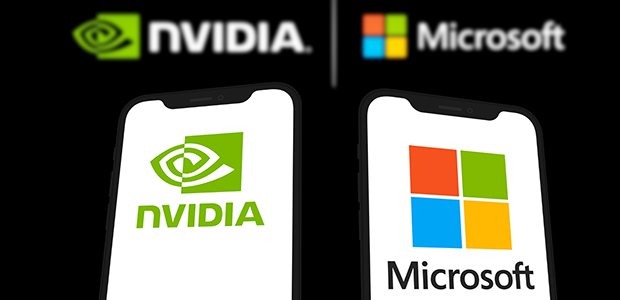
NVIDIA and Microsoft double down on support for AI startups
Announced at the HLTH healthcare innovation conference, the partnership aims to connect the startup ecosystem by integrating NVIDIA Inception, a global programme for innovative startups, with Microsoft for Startups. The initiative seeks to broaden access to accelerated computing resources by offering Cloud credits, software for AI development, and expert support.
Empowering high-potential startups
The collaboration's first phase focuses on digital health and life sciences companies participating in both NVIDIA Inception and Microsoft for Startups programmes. Startups will receive up to $150,000 in Microsoft Azure credits to leverage leading AI models, along with up to $200,000 worth of business tools from Microsoft. Additionally, participants will have priority access to Microsoft's Pegasus Program for go-to-market strategies.
NVIDIA Inception will provide 10,000 ai.nvidia.com inference credits for GPU-optimised AI models via NVIDIA-managed serverless APIs, as well as preferred pricing on NVIDIA AI Enterprise, which features the comprehensive suite of NVIDIA Clara platforms for healthcare computing. The programme will also offer early access to new healthcare solutions, investment opportunities through the Inception VC Alliance, and industry networking via the Inception Alliance for Healthcare.
Both companies will deliver dedicated technical support and conduct workshops to help startups develop digital health applications using the NVIDIA technology stack on Azure.
Driving AI-powered healthcare solutions
Hundreds of companies are already leveraging the synergy between NVIDIA Inception and Microsoft for Startups, utilising advanced AI and computing infrastructure to drive innovation.
One example is Artisight, a smart hospital startup that enhances operational efficiency and patient care through AI solutions. The company's network spans over 2,000 cameras and microphones at Northwestern Medicine in Chicago and more than 200 other hospitals. Artisight's technology includes speech recognition models for voice-enabled patient check-ins and computer vision systems that alert nurses to patients at risk of falling. These solutions are powered by NVIDIA software, such as Riva for conversational AI, DeepStream for vision AI, and the Triton Inference Server.
Andrew Gostine, CEO of Artisight, noted: "Access to the latest AI technologies is critical to developing smart hospital solutions that are reliable enough to be deployed in real-world clinical settings. The support of NVIDIA Inception and Microsoft for Startups has enabled our company to scale our products to help top U.S. hospitals care for thousands of patients."
Pangaea Data, another participant, uses AI to help healthcare organisations and pharmaceutical companies identify patients who remain untreated despite insights from existing medical records. The company’s PALLUX platform, deployed with NVIDIA GPUs on Azure’s secure Cloud, uses federated learning to enhance patient privacy while improving health outcomes. The platform helped one provider identify six times more cancer patients with cachexia for treatment and clinical trials, achieving 90% accuracy.
Pangaea Data CEO Vibhor Gupta explained: "Microsoft and NVIDIA have supported our work with powerful virtual machines and AI software, enabling us to focus on advancing our platform, rather than infrastructure management."
Expanding beyond healthcare
Future phases of the initiative will extend to startups in other industries, aiming to foster innovation across various sectors by combining accelerated computing infrastructure, AI, and Cloud resources.
The NVIDIA-Microsoft partnership also builds on a previously announced collaboration, which integrated Microsoft Azure with NVIDIA DGX Cloud to boost generative AI, medical imaging, and precision medicine efforts.

